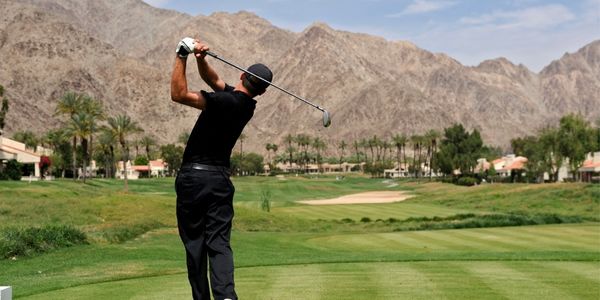
If You Practiced More, Would You Improve Your Game?
Does more time at the driving range and putting greens always improve your golf score?
Maybe you can relate to this scenario:
You decide to work on your tee shots and go to the driving range. You get a couple buckets of balls, thinking 100 repetitions will do the trick. You set the ball off the tee and swing away. When the ball comes to a stop, you set up the next ball. You smash 100 balls with your driver.
But what type of feedback did you receive other than, “I didn’t drive the ball as far as I wanted” or “I keep slicing my tee shots.”
After a session like this, you drive home feeling bad about the lack of improvement in your game.
Indeed, you have heard the phrase, “Practice smarter, not harder.”
Rapid fire practice does not work. It provides little feedback about the process, such as “Why did I slice the ball?” or “Why am I consistently leaving the ball short when I putt?”
Focused practice should be the goal.
In other words, the solution to improving your golf game is working smarter, not harder. Working smarter encompasses your mental, physical, and technical game.
You can only play at your peak if you tend to all three aspects of performance.
What is Smarter Practice?
* Knowing what you want to accomplish in each practice session – What are you specifically trying to accomplish?
*Break down the goal into its smallest parts, such as club face awareness. A focused approach leads to quicker results.
Understanding why the change is necessary or how it will improve your game – Knowing your ‘why’ helps improve motivation and commitment.
* Focusing on quality shots over quantity – Driving 200 balls off a practice tee without good form only reinforces poor mechanics.
Take your time and focus on the change you want to make.
* Performing your pre-shot routine before each shot – Pre-shot routines help narrow your focus when learning a new skill or when you experience pressure during competitive rounds.
* Identifying what you did wrong and right after each shot – Each shot provides feedback.
Instead of getting angry over shanking the ball, make an adjustment to your swing.
Practicing smarter improves both physical and mental performance simultaneously.
Phil Mickelson struggled through an off-year in 2022, notching just one top-10 finish in seven individual stroke-play events on the LIV Golf tour.
Mickelson also missed the 2022 U.S. Open and 2022 Open Championship cuts. Mickelson has been working with his coach, Andrew Getson, to improve his shot-shaping skills.
Mickelson’s approach to improvement is to practice smarter, not harder, and make the best use of his time on the golf course.
“Rather than quantity, it’s much more quality-driven, and I’m seeing a difference when I go out and play in the way I am kind of pulling the shots off on the golf course.”
Haphazard repetition reinforces bad habits. Only focused effort leads to improvement and peak play.
Tip for Improving your Golf Game through Focused Repetition
Follow these five simple practice rules:
- Have a practice plan and objectives.
- Execute the plan.
- Evaluate the result.
- Adapt for the next shot.
- Pay attention to your mental game.
Related Golf Psychology Articles
- How to Take Your Practice Game to the Golf Course
- Taking your Practice Game to The Golf Course
- Practice vs. Tournament Rounds in Golf
- Subscribe to The Golf Psychology Podcast on iTunes
- Subscribe to The Golf Psychology Podcast on Spotify
Golfers Mental Edge Program

“The Golfer’s Mental Edge 2.0” is new in 2021. This audio and workbook program helps you overcome a lack of focus, low self-confidence or other mental game obstacles on the course that prevent you from reaching your true potential in golf. Learn the secrets to better focus, confidence and composure that Junior, Collegiate and Tour Professionals use to WIN!